How Long Does Postpartum Swelling Last?
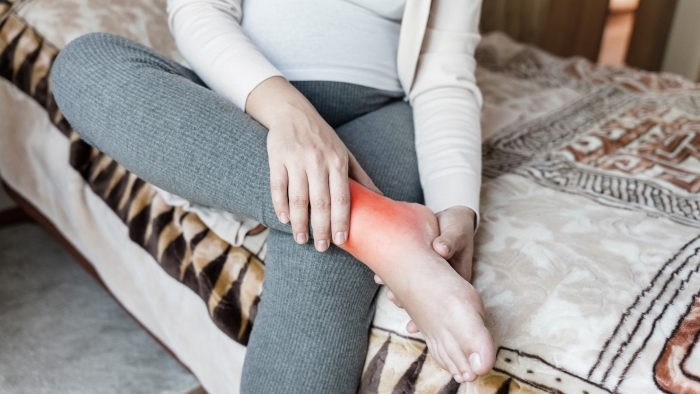
- Postpartum swelling can be a normal part of recovery after delivery.
- Excess fluid during pregnancy and delivery can contribute to postpartum edema.
- There are many ways to treat postpartum swelling.
Some of my most vivid memories of becoming a mother were the early postpartum days in the hospital. I remember feeling like a giant water balloon. Everything was puffy, swollen, and sore— face, hands, ankles, and feet. My nurse reassured me that these symptoms were all normal, but it sure didn’t feel normal.
Many pregnant women notice swelling in one or more areas of their bodies. This water retention can be uncomfortable, occasionally even painful. The swelling often remains after birth and can sometimes increase— regardless of the delivery method.
Like many mothers after a Cesaerean or vaginal birth, you may be wondering, “How long does postpartum swelling last?” as well as, “What can I do to make the swelling better?”
Postpartum Swelling: Is It Normal?
Let’s start by explaining what postpartum (after delivery) swelling is and the bodily reasons why various areas might carry extra fluid.
What is Postpartum Swelling?
Postpartum swelling is a general term used to describe fluid retention that remains in the body after delivery. It’s also known as postpartum edema (swelling), lymphatic drainage, or extra pregnancy fluid.
The water retention most women experience towards the end of pregnancy in their faces, hands, legs, ankles, or feet is all a normal part of third-trimester woes. It’s caused by a hormone called progesterone, which is responsible for maintaining a pregnancy.
Another reason for swelling is an increase in circulating blood volume. According to a 2016 study, a woman’s circulating blood volume increases by as much as a liter and a half throughout her pregnancy.
All that extra fluid and its tendency to linger can explain why many women experience swelling as a normal side effect during pregnancy.

What Causes Swelling After Giving Birth?
The labor and delivery process itself can add to the swelling postpartum women experience.
Reasons can include:
- Intravenous (IV) fluids. While they can be a necessary part of the labor and delivery process, IV fluids administered during this time add to the increased fluid volume already present.
- Prolonged bed rest. Decreased ability to move before, during, and after labor and delivery means the extra fluid in your body tends to stay in one spot, aggravating swelling.
- Vaginal delivery. During the pushing stage, your legs may be in a variety of positions without stretch breaks. This can allow fluid to pool in your lower legs and feet, which will worsen swelling.
5 Helpful Ways to Relieve Postpartum Swelling
While postpartum swelling may be normal, it generally isn’t comfortable.
Many women find that swollen legs and feet are particularly painful. It makes sense— all that extra fluid puts pressure on sore nerves and muscles, which can hobble even the most agile.
So, what can you do to lessen swelling during the postpartum period?
Drink More Water
It may seem counterintuitive— drinking extra fluids to fight the fluid that’s already there— but it does help.
The thought here is that when you stay hydrated, you tell your body that it can get rid of extra fluid that’s stored in the tissue (e.g. swollen feet). Limiting liquids tells your body to hold on to the fluid it already has, which will increase swelling.
As a bonus, drinking water will make your first bowel movement easier, along with preventing bladder infections caused by dehydration.
Limit Salt
Eating too much sodium has long been associated with swollen hands and feet. Foods rich in salt tend to cause fluid retention, which can worsen painful swelling in the postpartum stage.
As much as possible, try to avoid foods with high salt content, such as:
- Convenience/processed foods
- Chips and other salty snack foods
- Soft drinks
Eating a range of healthy snacks, as well as taking a good prenatal vitamin, provides your body with the energy and nutrients it needs to heal in the postpartum recovery period.
Elevate Your Legs
When sitting down or resting, elevate your legs and feet so that your feet are level with your heart. Doing so allows the extra fluids pooled in your feet to move toward the center of your body.
In my experience as a professional nurse, many women report elevating their legs as the single most effective move to reduce pain in their swollen feet.
Try Compression Socks
Compression stockings and socks aren’t just for use in pregnancy.
Wearing them during your postpartum recovery helps provide support to swollen ankles, ease foot pain, and improve blood circulation.
If you delivered via Cesaerean section, your hospital likely used compression stockings early in your recovery for the same reasons, as well as to reduce swelling and prevent blood clot formation.
Consider Light Exercise
A good rule of thumb in the postpartum stage is to start activity slowly, then increase gradually as your body is ready.
Light exercise, such as walking, helps improve circulation, increase blood flow to your feet, and will also reduce swelling.
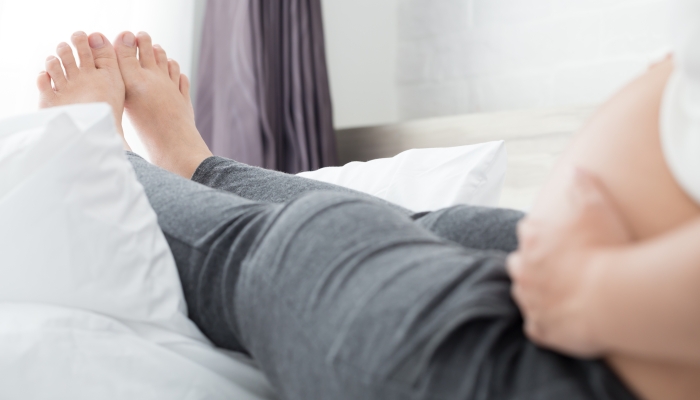
How Long Does Postpartum Swelling Last?
Postpartum edema usually lasts for the first week, and sometimes up to two weeks, following delivery.
If you notice that the swelling is increasing, causing more pain, or is accompanied by other symptoms, contact your doctor immediately.
When to See A Doctor for Postpartum Swelling
Occasionally, postpartum edema is caused by a complication after delivery, such as preeclampsia or a blood clot (deep vein thrombosis).
Contact your doctor immediately if you notice any of the following symptoms within the first six weeks postpartum:
- Sudden, severe headaches
- Blurred vision
- Dizziness
- Upper abdominal pain
- Sudden weight gain
- High blood pressure
- Chest pain
- Difficulty breathing
- Worsening swelling in any area
- Pronounced swelling in one leg, with or without increased redness or warmth
These symptoms can also occur during pregnancy, particularly during the second and third trimesters.
Promptly notify your physician if you are experiencing any of these symptoms, whether you’re pregnant or in the postpartum recovery stage.
FAQs
How long should a mother rest after giving birth?
Most postpartum women are up and moving within a few hours after delivery. Not only does it feel good to many mothers to move after laying down for a long time, but it also helps to get the blood flowing to sore areas.
Once home, a new mother should continue to move around as she is able and gradually increase activity.
Increasing pain may be a sign that you’re doing too much activity too quickly.
Rest, and contact your doctor if other symptoms develop.
Will drinking cold water after labor slow down recovery?
There has not been scientific research to prove or disprove that cold water in the postpartum period slows recovery.
However, depending on a woman’s cultural background, the answer to that question may change.
Ask the new mother which she prefers. Either warm or cold water is fine during postpartum recovery.
How much water should you drink every day postpartum?
In general, a woman should drink half her body weight in ounces per day.
For example, if you weigh 150 pounds, you should drink 75oz (or a little over two liters).
However, if you’re breastfeeding, your daily water requirement will be higher because you’re also hydrating your baby. Aim for three to four liters in this situation.
Will drinking caffeine affect swollen feet?
Caffeine narrows blood vessels, limits blood flow, and also causes mild dehydration. All of these factors can worsen postpartum swelling.
Limit caffeine intake in the postpartum stage. Water is the healthiest beverage choice at any point in a woman’s pregnancy journey.
Most women feel pain when experiencing swelling in the postpartum stage. Fortunately, there are many ways to reduce swelling and discomfort so that you can get back to enjoying time with your little one.
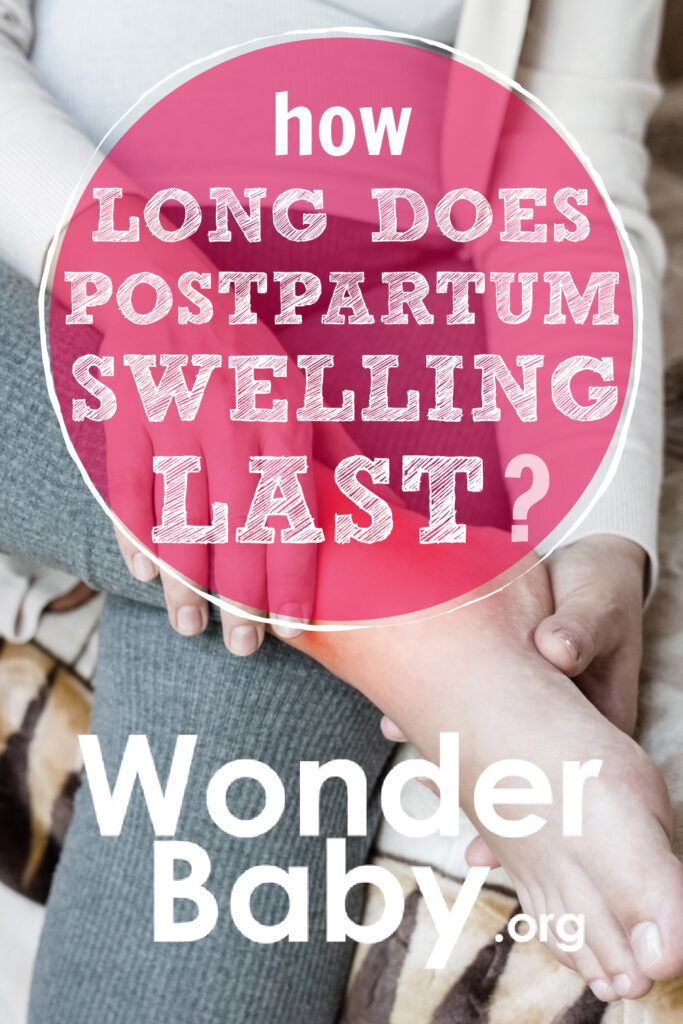
The information WonderBaby provides is not intended to be, and does not constitute, medical or other health advice or diagnosis and should not be used as such. Always consult with a qualified medical professional about your specific circumstances.
Related Posts
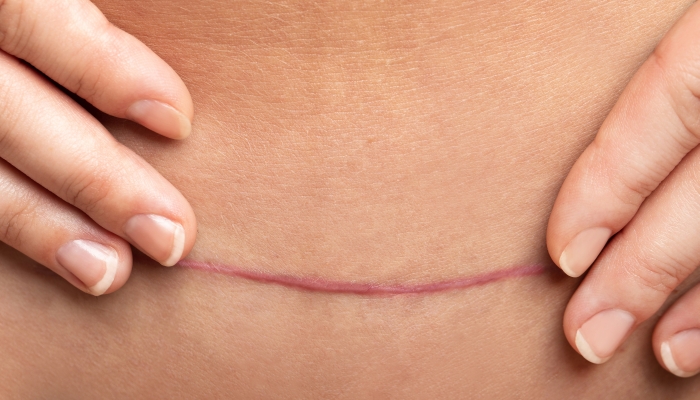
Pregnancy
How To Deal With an Ingrown Hair on a C-Section Scar
Ingrown hairs on a C-section scar can be treated using a warm compress or mild exfoliation. Infected ingrown hairs may require antibiotic treatment.
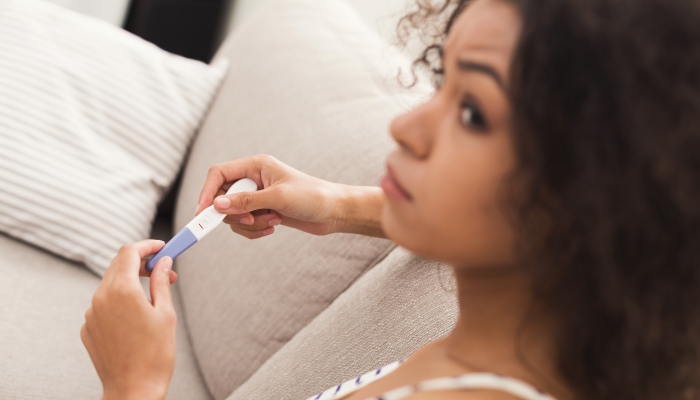
Pregnancy
What’s a Dye Stealer Pregnancy Test?
A dye stealer pregnancy test usually means that your hCG levels are very high, which is typically considered a good sign for pregnancy.

Pregnancy
Can Yelling Cause a Miscarriage?
Yelling alone can not cause a miscarriage. However, maternal stress can cause high blood pressure, preterm labor, and other health problems.